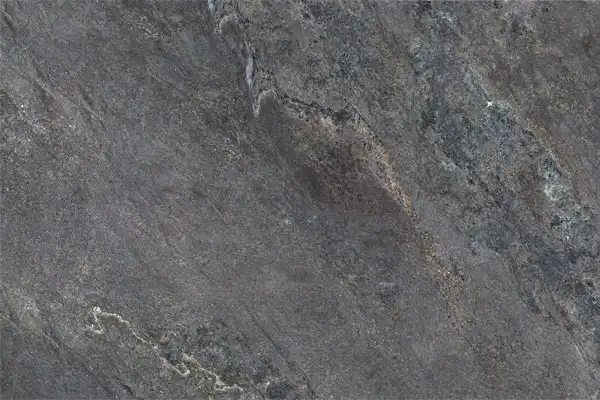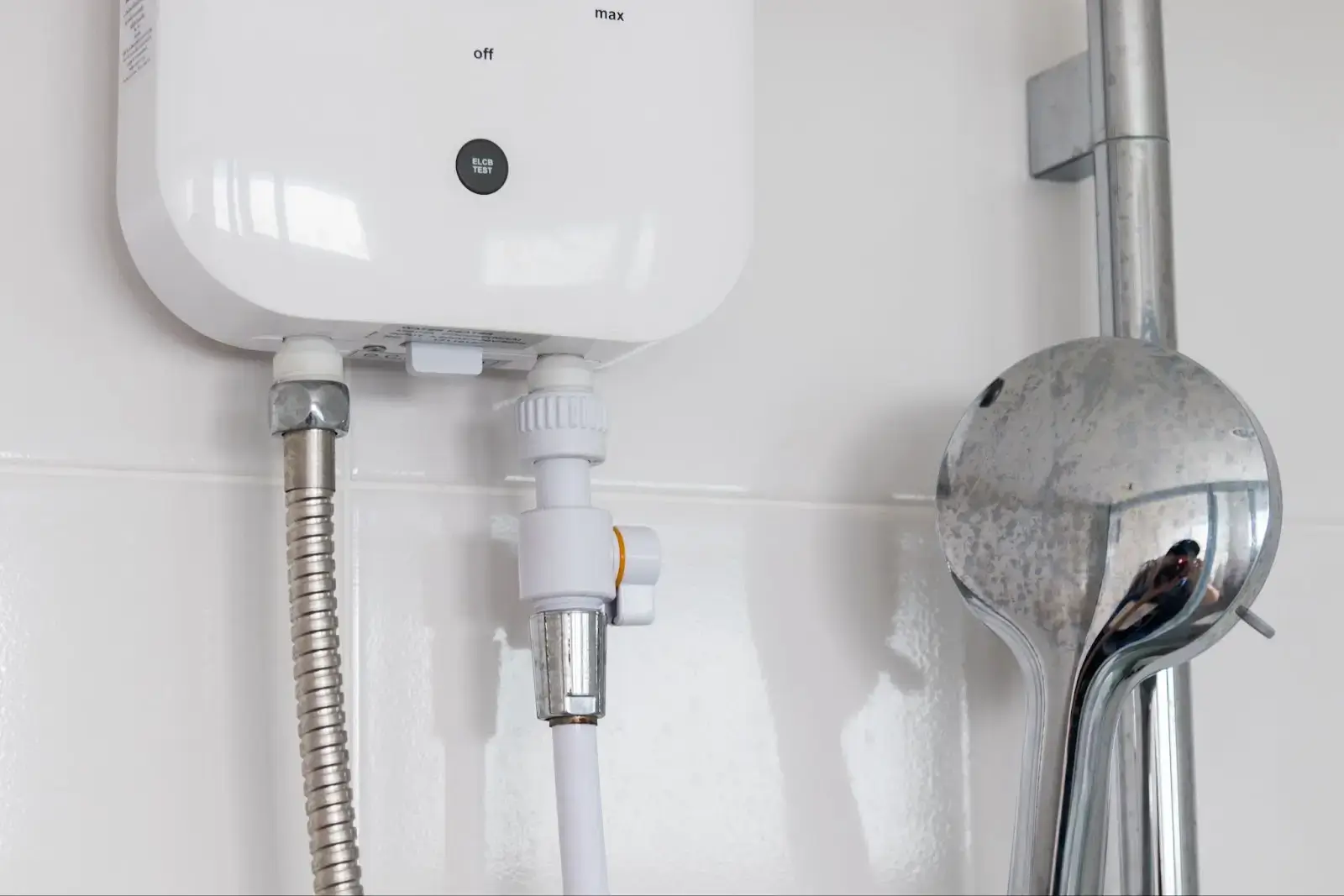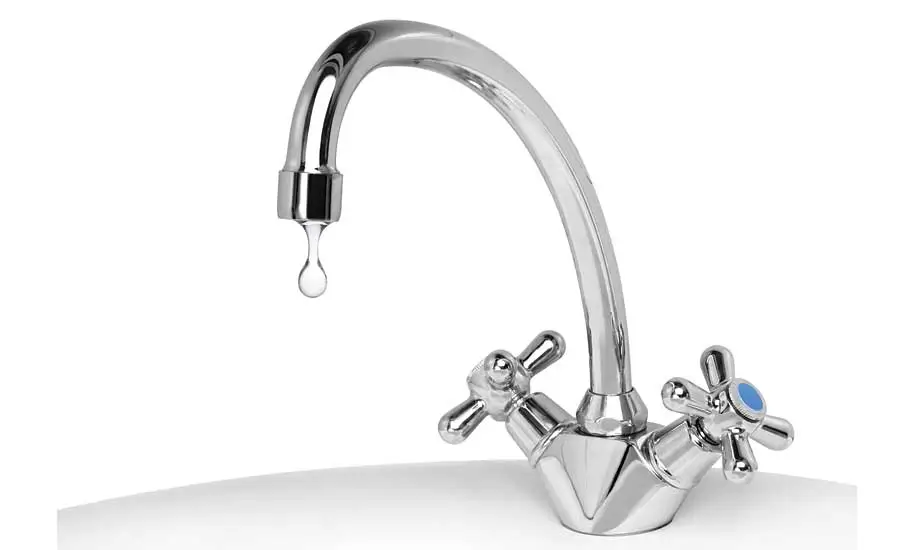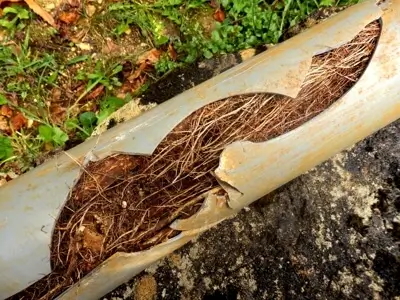Slab leaks are the bane of every Portland homeowner's existence! You know, those silent, sneaky little water gremlins that like to wreak havoc under your home's concrete foundation? Ugh!
We get a lot of rain here in Portland, which makes foundation cracks and shifts inevitable. And where there are cracks, slab leaks are never far behind. A small leak today can turn into a raging underground river tomorrow if left unchecked.
Catching those slab leaks early is absolutely crucial for avoiding thousands upon thousands in water damage nightmares later on. Even just a warm spot or a bit of dampness on the floor could be a major red flag!
So let's get sleuthing and take those slab squatters down, shall we? We'll walk you through all the latest leak detection tricks of the trade. We'll also discuss long-term repair options.

What is a Slab Leak and How to Identify One
Let's dive into the murky world of slab leaks - those insidious little water gremlins that love causing chaos under your home's foundation.
So what exactly are we dealing with here? A slab leak happens when the water pipes running under your concrete foundation spring a leak and start hemorrhaging water into the surrounding soil. It could be due to pipe corrosion, shoddy construction, that foundation shifting and cracking from all our rainy Portland weather, a spike in water pressure, or even aggressive tree roots invading your pipes. Any number of factors can turn those pipes into a leaky mess.
But how do you sniff out one of these pesky slab leaks before it turns into a full-blown disaster? Here are some telltale signs to watch out for:
- Water bills suddenly spiking for no obvious reason? That's a big red flag that you've sprung a leak somewhere.
- Damp, mildewy spots popping up on the floor when there's no visible drip or spill to blame? You may have an underground water party brewing.
- Randomly warm patches on the floor that can't be explained? Chances are you've got a hot water pipe springing a leak and heating things up underfoot.
- Hearing what sounds like running water even when every fixture is turned off? Listen closely - those pipes could be straight-up screaming for help.
- Cracks starting to spread across your walls or foundation? That's a slab leak slowly eroding the soil and causing some serious structural shifting.
- Persistent musty odor that just won't go away no matter how much air freshener you use? A dead giveaway that mold and mildew are thriving thanks to all that moisture buildup.
If you're noticing any of those indicators, it's time to go full plumbing detective mode! A slab leak left unchecked can turn into a seriously expensive, destructive nightmare. Trust us, you do NOT want to ignore the warning signs on this one.
How to Identify a Slab Leak: Diagnostic Methods
Alright, so your home's been showing some suspicious signs that you might have one of those slab leaks lurking underfoot. Here are some methods for sniffing out exactly where that soggy culprit is hiding.
Visual Inspection
Let's start with visual inspection. You should scan and inspect all of your floors, walls, and foundations. You should look for any telltale damp spots, cracks, buckling, or patches of mold or mildew. Those are all big neon signs pointing to potential leak zones. Don't forget to peek under sinks and appliances too while you're at it!
Meter Testing
Next, you can do a little meter testing. Before you start running the dishwasher or jumping in the shower, take a look at your water meter. Make sure no fixtures are running, then watch carefully - if that meter keeps on ticking over, it means water is flowing somewhere it shouldn't be. Bingo, you've got a leak on your hands!
Pressure Testing
For a more comprehensive check, you can also request a pressure test on your whole plumbing system from a licensed pro. They'll crank up the water pressure and use specialized equipment to detect even the tiniest drop, helping to pinpoint that leak's exact location.
Infrared Camera Detection
If you suspect the leak is coming from a hot water pipe, heat is your new best friend for sleuthing. An infrared camera can pick up on those temperature variations caused by leaking hot water. The pros use this nifty tech to see the exact hot spots where pipes are springing leaks under the slab.
Professional Leak Detection Services
Speaking of the pros, their leak detection methods are really in a league of their own. Plumbers have access to some crazy specialized tools like acoustic listening devices that can literally hear the sound of leaks from several feet away. When you want accurate results, it's worth calling in the big guns!
At the end of the day, slab leaks can be tricky to locate precisely. Using a variety of detection methods is key to avoiding a drastic (and expensive) game of plumbing Whac-A-Mole as you chase that leak all over.
How to Fix a Slab Leak
Okay, so you've gone full plumbing detective and managed to track down that sneaky slab leak's location. Nice work! Now you've got to figure out how to take it down for good. Here are some of the top repair methods:
Spot Repair
If the leak seems fairly localized to one main area, a spot repair could be your quickest, most cost-effective option. You can jackhammer just that specific section of the slab, digging down to the leaky pipe, and swapping in a fresh new piece. It's a bit of a mess, but it gets the job done fast if you can pinpoint the problem spot.
Pipe Rerouting
Another route is to just say "screw it" to the whole underfloor pipe situation and reroute things up and out of that moisture-prone slab. By redirecting your plumbing above ground, you avoid the hassle of future leaks wreaking havoc under the foundation. Sure, you'll have some exposed pipes to work around, but no more soggy subterranean surprises!
Trenchless Pipe Repair (Epoxy Pipe Coating)
If you'd rather avoid the demolition crew and rerouting circus, you could also look into these nifty trenchless repair methods. Plumbers have a few tricks up their sleeves for patching leaks by basically creating a sturdy new pipe within the old one using epoxy coatings or relining systems. Minimal jackhammering required!
Full Pipe Replacement
But sometimes, after years of leaks and that old piping system nearing the end of its lifespan, a full-scale pipe replacement is the way to go. It's a bigger upfront investment for sure, but starting from scratch means no more surprise leaks and peace of mind for decades to come. You've just got to rip off the Band-Aid and get it over with.
No matter which repair option you choose, the key is addressing that slab leak ASAP before it turns into a full-blown waterpark under your floorboards. The longer you let it go, the more expensive and disruptive it becomes to fix all the collateral water damage. Get on it quickly and you just might be able to avoid your home pulling its best Aquaman impersonation!
Preventing Slab Leaks in Portland Homes
Once you've dealt with a slab leak nightmare firsthand, you'll do just about anything to avoid going through that soggy mess again! While fixing leaks as soon as they pop up is crucial, preventing future leaks is even better.
Regular Plumbing Inspections
First up, let's talk about staying ahead of the game with regular plumbing inspections. Especially if you've got an older home with pipes that have been chugging along for decades, it's smart to get those systems checked over annually by a licensed pro. They'll be able to spot any potential trouble zones before they can turn into a full-blown slab leak crisis.
Monitoring Water Pressure
Another key factor that can lead to premature pipe failure? Water pressure that's been cranked up too high. All that excess force flowing through your pipes day in and day out can really start to wreak havoc over time. Investing in a pressure-reducing valve to keep things under control is an easy way to prevent those pipes from springing leaks left and right.
Addressing Foundation Issues Early
Of course, the pipes themselves aren't the only thing that can cause slab leak drama. Our good old friend the Portland rain loves to seep into even the tiniest foundation cracks and get its grubby mitts all over those pipes underfoot. Staying on top of any developing foundation issues and getting them professionally repaired ASAP is crucial.
Upgrading Old Plumbing Systems
If your home's plumbing system is really showing its age with corroded galvanized or rigid copper pipes, it might be time to bite the bullet and upgrade to some fresh new pipes. Modern flexible piping materials like PEX and CPVC are made to withstand the test of time without that pesky corrosion problem. It's an investment for sure, but one that'll pay off big time in avoiding slab leak whack-a-mole down the road.
At the end of the day, a little preventative TLC goes a long way towards keeping your home high and dry! Why put yourself through the hassle when you can just nip those leaks in the bud from the get-go?
Slab Leak Struggles? Don't Let Portland's Wet Weather Dampen Your Spirits
That's everything you need to know about identifying, repairing, and preventing those meddlesome slab leaks from turning your home into an underground waterpark! A little preventative maintenance really does go a long way, but when those soggy situations inevitably pop up, you can't let them fester.
At the first whiff of funky odors, warm floor patches, or sky-high water bills, quit messing around and give the plumbing pros at Sunset a ring at (503) 500-5866. We'll get those leak gremlins out from under your foundation in no time flat using all the latest gizmos and no-dig repair methods. Say goodbye to coming home to a literal waterpark in your living room after every rainstorm - we'll get your place dried out and leak-free for the long haul!







